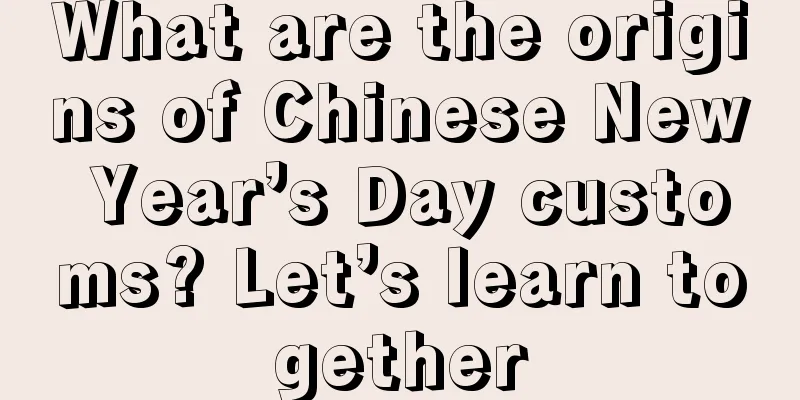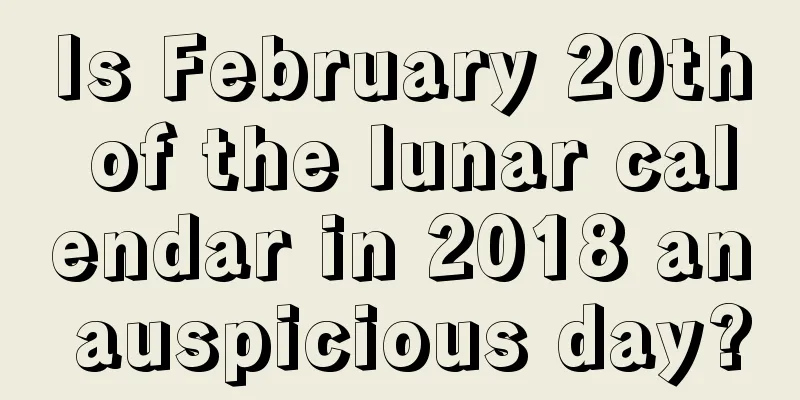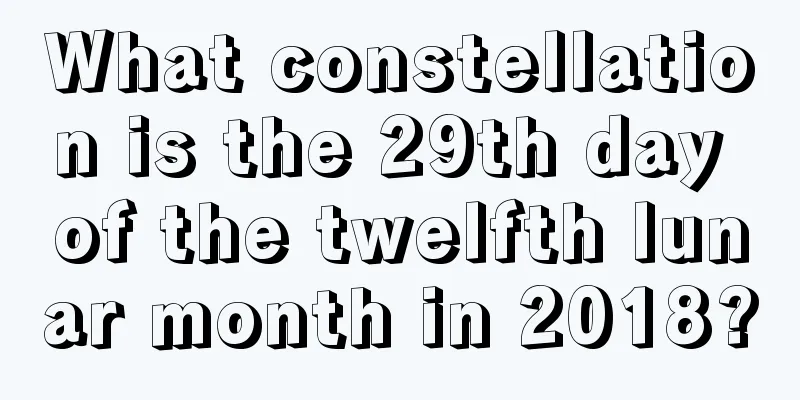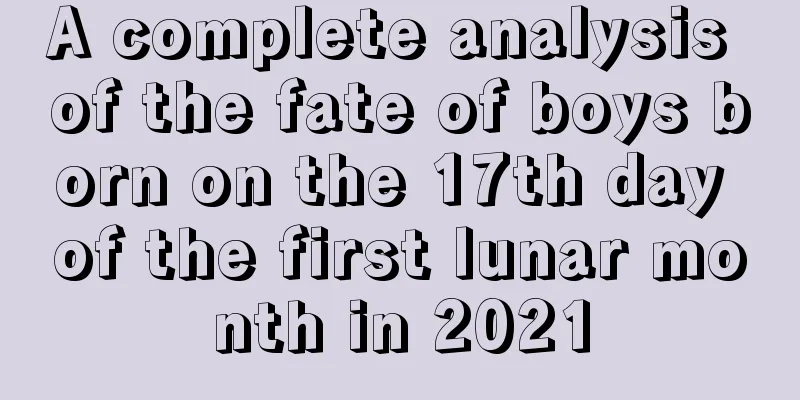What are the origins of Chinese New Year’s Day customs? Let’s learn together

New Year's Day, commonly known as "New Year" in most countries in the world, is the first day of the new year in the Gregorian calendar. Yuan means "first"; Dan means "day"; "Yuandan" means "first day", so what is the origin of the customs of China's New Year's Day? Let’s learn together.What are the origins of Chinese New Year’s Day customs? Let’s learn togetherOrigin of New Year's DayIn ancient China, the first day of the twelfth lunar month or the tenth lunar month was regarded as New Year's Day. Starting from Emperor Wu of the Han Dynasty, it was January 1st of the lunar calendar. Starting from the Republic of China, it was January 1st of the Gregorian calendar. In 1949, the People's Republic of China also took January 1st of the Gregorian calendar as New Year's Day. Therefore, New Year's Day is also called the "Gregorian calendar year" in China. "New Year's Day" originated from the West. Around 50,000 BC, the ancient Egyptians changed from nomadic to agricultural, and settled on both sides of the Nile River. Their agricultural harvest was closely related to whether the Nile River flooded. The ancient Egyptians discovered from long-term observations that the time of the Nile River flooding was regular. They recorded the time each time on bamboo poles, from which they learned that the interval between two floods was approximately 365 days, or one year. At the same time, the ancient Egyptians also discovered that when the first rising tide of the Nile River reached the vicinity of today's Cairo, the sun and Sirius rose from the horizon at the same time. Therefore, the ancient Egyptians set this day as the beginning of the year, which is the earliest origin of New Year's Day. Compared with other traditional festivals, the history of our New Year's Day is not very long. Yuan is the first day of the Gregorian calendar. Our government adopted the Gregorian calendar after the establishment of the Republic of China. Therefore, in our country, the history of New Year's Day is less than a hundred years. When the Republic of China was founded, Sun Yat-sen designated the first day of the first lunar month (New Year's Day) as the Spring Festival and January 1 of the Western calendar (Gregorian calendar) as the New Year in order to "follow the Xia calendar to follow the agricultural season and the Western calendar to facilitate statistics." On September 27, 1949, the First Plenary Session of the Chinese People's Political Consultative Conference adopted the "Gregorian calendar" and named the first day of the first lunar month as "Spring Festival" and January 1 of the Gregorian calendar as "New Year's Day". New Year's Day customs Since New Year's Day was born during the Republic of China period and evolved from the Spring Festival, when China first began to celebrate New Year's Day, the customs and habits of celebration were of course mostly similar to those of the Spring Festival, or a simplified version of the Spring Festival. After all, New Year's Day is not a traditional festival in my country. Although some traditional ways of celebration are still used, such as setting off firecrackers, killing three animals, worshiping ghosts and gods, and paying homage to ancestors, it does not necessarily occupy an important position in people's minds. In modern times, the celebration customs of New Year's Day are simpler. The New Year's Day food in ancient China was rich and colorful, and the records in "Jingchu Sui Shi Ji" are a perfect reflection of this. During the Southern Dynasties, after the New Year's Day greetings were paid in Jingchu, people would drink pepper and cypress wine, peach soup, Tusu wine, gum candy, and a five-spice plate. They would also take Fu Yu powder, Quegui pills, and eat an egg each. Among them are peach soup, drinks, food, and medicine, all of which have their own special meaning. Legend of New Year's Day Legend has it that during the prosperous era of Yao and Shun in ancient times, Emperor Yao was diligent in his work and did many good things for the people, and was loved by the people. However, because his son was not talented and not very capable, he did not pass the throne of "Son of Heaven" to his son, but passed it to Shun, who was both virtuous and talented. Yao said to Shun, “You must pass the throne well in the future, so that I can rest in peace after my death.” Later, Shun passed the throne to Yu, who had made great contributions to flood control. Yu, like Shun, was close to the people and did many good things for the people, and was very loved. Later, people regarded the day when Emperor Shun offered sacrifices to the heaven and earth and the former Emperor Yao after Yao's death as the beginning of the year, and called the first day of the first lunar month "New Year's Day", or "Yuan Zheng", which was the ancient New Year's Day. |
<<: How good is the day after Xiaohan on January 6, 2021? Is Xiaohan the coldest solar term?
Recommend
Is September 17th of the lunar calendar in 2020 suitable for marriage?
Is September 17th of the lunar calendar in 2020 s...
What is the date of September 18th in the lunar calendar in 2020?
What is the date of September 18th in the lunar c...
If you get pregnant on Qingming Festival on April 4, 2021, when will you give birth, and what will be the fate of the child?
Qingming Festival falls in the middle of spring, a...
Is March 28th of the lunar calendar in 2020 an auspicious day? Is it a good day to pray for blessings?
The benefits of praying at different times are dif...
Where is the God of Wealth on the first day of the tenth lunar month in 2017?
A gust of cold wind blows by, and we enter the ea...
Is it not suitable to get a haircut on December 11th of the lunar calendar in 2017?
Introduction: Auspicious days have a profound infl...
Is it possible to get married or engaged on April 16th of the lunar calendar in 2019?
The fourth month of the lunar calendar marks the ...
What about a boy born on August 17, 2022? Is fate good?
What about a boy born on August 17, 2022? Is fate ...
How about October 26th of the lunar calendar in 2021? Is it suitable to go to a 4S store to pick up a new car?
The tenth month of the lunar calendar is here. Is ...
Is September 22nd of the lunar calendar in 2022 an unlucky day? What should we pay attention to in terms of fortune?
The existence of unlucky days can give us a certai...
Is it okay for Guyu to get engaged? Any advice?
A good marriage determines whether the second half...
Will it still be cold after Grain Rain? How can we change our luck as the weather turns warmer?
As the saying goes, spring rain is as precious as ...
Why is the seventh day of the first lunar month called "Renri"? What is the explanation?
In Chinese culture, many days have their own "...
Is the 25th day of the first lunar month in 2019 an auspicious day?
The first month of the lunar calendar is a festive...
Is it good to have a boy born on the first day of the Lunar New Year in 2018? What is the best name?
Introduction: New lives are born every day, and th...









